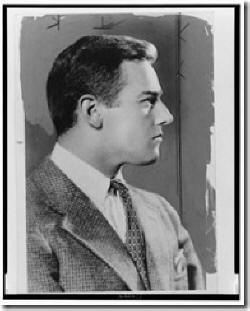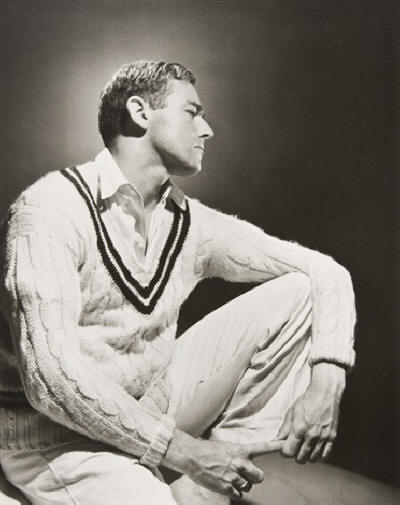

Queer Places:
349 Mountain Rd, New Haven, CT 06515
Yale University (Ivy League), 38 Hillhouse Ave, New Haven, CT 06520
Yale Club, 50 Vanderbilt Ave, New York, NY 10017
 Frederic Prokosch (May 17, 1906 – June 2, 1989)[1] was an American writer, known for his novels, poetry, memoirs and criticism. He was also a distinguished translator.
Dreamer’s Journey: The Life and Writings of Frederic Prokosch by Robert M. Greenfield is the first comprehensive study of the enigmatic, erratically brilliant novelist and poet. It explores his published and unpublished writings, his troubled personal life, the conflicts arising from his homosexuality, his wanderings as a kind of permanent expatriate, and his preoccupation with reinventing his persona and creating an imaginary and highly dramatic past for himself.
Frederic Prokosch (May 17, 1906 – June 2, 1989)[1] was an American writer, known for his novels, poetry, memoirs and criticism. He was also a distinguished translator.
Dreamer’s Journey: The Life and Writings of Frederic Prokosch by Robert M. Greenfield is the first comprehensive study of the enigmatic, erratically brilliant novelist and poet. It explores his published and unpublished writings, his troubled personal life, the conflicts arising from his homosexuality, his wanderings as a kind of permanent expatriate, and his preoccupation with reinventing his persona and creating an imaginary and highly dramatic past for himself.
Prokosch was born in Madison, Wisconsin, into an intellectual family that travelled widely. His father, Eduard Prokosch, an Austrian immigrant, was Professor of Germanic Languages at Yale University at the time of his death in 1938.[2] Prokosch was graduated from Haverford College in 1925 and received a Ph.D. in English in 1932 from Yale University. In his youth, he was an accomplished squash racquets player; he represented the Yale Club in the 1937 New York State squash racquets championship.[3] He won the squash-racquets championship of France in 1938. During World War II, Prokosch was a cultural attaché at the American Legation in Sweden. He spent most of the remainder of his life in Europe, where he led a peripatetic existence. His interests were sports (tennis and squash), lepidoptery, and the printing of limited editions of poems that he admired. From early on, Prokosch sought to surround himself with a veil of mystification and cast his life into a hopeless riddle. Approaching his sixtieth year, he boasted that no person had succeeded in knowing him as an integral personality: "I have spent my life alone, utterly alone, and no biography of me could ever more than scratch the surface. All the facts in Who’s Who, or whatever, are so utterly meaningless. My real life (if I ever dared to write it!) has transpired in darkness, secrecy, fleeting contacts and incommunicable delights, any number of strange picaresque escapades and even crimes, and I don't think that any of my 'friends' have even the faintest notion of what I'm really like or have any idea of what my life has really consisted of. . . .With all the surface 'respectability,' diplomatic and scholarly and illustrious social contacts, my real life has been subversive, anarchic, vicious, lonely, and capricious."[4] The publication of Voices: A Memoir in 1983, advertised as a record of his encounters with some of the century's leading artists and writers, returned Prokosch to the limelight. His early novels The Asiatics and The Seven Who Fled were reissued to much public acclaim.[5] Prokosch died in Le Plan-de-Grasse (near Grasse), France.

by
George Platt Lynes
Prokosch's novels The Asiatics and The Seven Who Fled received widespread attention in the 1930s. The action in both of these narratives takes place in Asia, a continent Prokosch had not visited but wrote about from his imagination and from books and maps. Landscape descriptions are so prevalent that the landscape often takes on the role of a character in its own right. Albert Camus said about The Seven Who Fled, "Prokosch has invented what might be called the geographical novel, in which he mingles sensuality with irony, lucidity with mystery. He conveys a fatalistic sense of life half hidden beneath a rich animal energy. He is a master of moods and undertones, a virtuoso in the feeling of place, and he writes in a style of supple elegance."[6] After the 1930s, popular interest in Prokosch's writing declined, but he continued to write steadily and to solidify his reputation as a writer’s writer with an elite following that included Thomas Mann, André Gide, Sinclair Lewis, Albert Camus, Thornton Wilder, Dylan Thomas, Anthony Burgess, Raymond Queneau, Somerset Maugham, Lawrence Durrell, Gore Vidal, and T.S. Eliot. “Pondering about Prokosch and his fate, I have come to the conclusion,” wrote Isaac Bashevis Singer, “that he is himself in a way at fault for being so woefully neglected. He has not cared to husband his natural riches... His roots are in this land. If Prokosch, like Faulkner, had limited his creative energies to one milieu, one region, he would certainly be counted today among the pillars of American literature.”[9] Among the most noteworthy of Prokosch’s latter-day writings are The Idols of the Cave (1946), a sophisticated story about a circle of aesthetes and socialites in New York City through the war years; Nine Days to Mukalla (1953), a dreamlike journey into the Arabian world; A Tale for Midnight (1955), a Gothicized retelling of the Cenci story; The Wreck of the Cassandra (1966), a realistic and poetic story of nine people castaway on a savage island; The Missolonghi Manuscript (1968), a “mediation” on the romantic artist; and America, My Wilderness (1972), an excursion into magical realism. Prokosch was named a Commander in the Ordre des Arts et Lettres by the French government in 1984 and awarded the Volterra Prize two years later. His novels have been translated into 15 languages.
My published books: